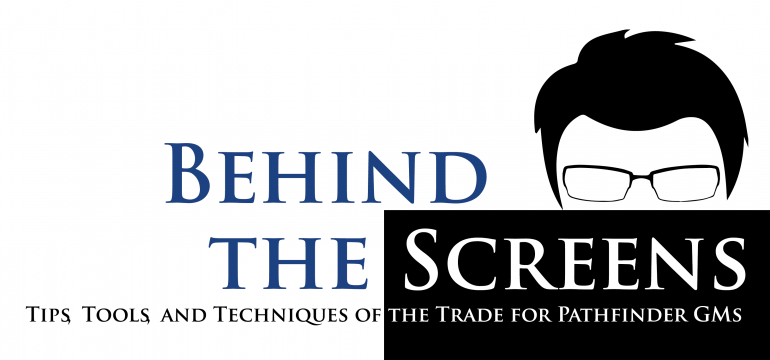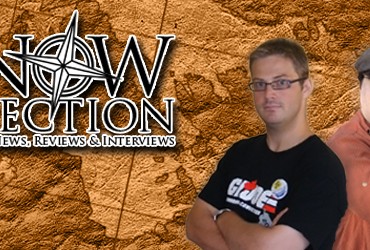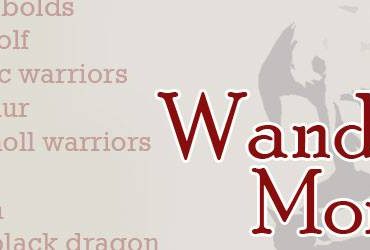Alright, so you’ve gotten a handle on what multi-table events are. You’ve figured out what form it’ll take. And you’re looking to run one for in your local community. So let’s dive into the first steps towards making that happen.
Early Considerations
If you’re running a prewritten module that features multiple tables (a la Paizo’s GenCon special scenarios) the adventure and its pacing, progression, and encounters are already written for you. Also, chances are if you’ve gotten your hands on a GenCon special packet, you’re already better equipped to organize or participate in a multi-table event than I can make you here.
So I’m going to proceed with the assumption that you’re trying to run an event scenario at least mostly of your own design. Writing an adventure for multiple parties is structurally no different from writing one for a single party, but you do need to keep a few things in mind.
First off, time is an enormous factor in multi-table events. The more people are involved in your event, the more time it’s going to take to do anything. If you thought that herding five PCs through a five room dungeon was difficult, imagine shepherding twenty five. Keep time constraints in mind when designing your adventure and keep things simple and straight forward. A series of encounters that might take four hours with a single table of five people might take half again as long when dealing with five times as many people.
Also, consider that the off-rails adventuring that some PCs can be so fond of might well throw a wrench in the works of a smooth running event. Consider including certain adventure conditions that discourage or flat out disallow PCs to zig when they’re supposed to zag. GMs in charge of running tables should be coached in advance to do whatever it takes to keep the adventures moving. Delays mean that either the entire event gets held up or the dallying table gets left behind.
Assemble Your Team
Regardless of the type of event you’re running, you’re going to need help. You know how sometimes a table of five players can get overwhelming? Now imagine twice as many players. Thrice? More? Many, many more…?
From variable-length combats to simultaneously triggered encounters there are a lot of moving parts to a multi-table event. But the exact number of organizers you’re going to need depends on the size of your event and its complexity. If you’re looking at a cross over game between two groups chances are you’re may not need more than one close confidant to bounce ideas off of. For something as large as a convention hall you might need a dozen or more organizers to manage all of the various interactions.
For most local community events, and for the purposes of this discussion, I’m going to assume that there won’t be more players than a typical PFS game day – which is to say between 10 and 20 participants. A group of this size would need between two and five GMs and those GMs could be comfortably managed by a single event overseer (presumably you). When communicating with your team in the planning stages of the event I’d recommend establishing a single, clear line of communication. There are lots of apps available for this express purpose. Google Hangouts or Skype provide excellent (and free!) platforms for video conferences and Slack offers great silo’d communication threads. Keeping a shared resources folder or document on a group accessible cloud is also a key to success so that every one of your organizers can reference the appropriate drafts.
Outlining Your Event
As I mentioned before, writing an adventure for a multi-table event isn’t all that different from coming up with an adventure for a single group. There are a plethora of guides available (some even in this blog’s backlog) that can walk you through adventuring writing.
There is, however, one important caveat. There are some GMs who run their homebrew games with little to no prep work at all. They guide the narrative of their stories by the seat of their pants. And this can be great. With the right mix of improvisational skills and rules mastery, a no-prep GM can be an engaging experience for PCs. But, as the lead organizer of a multi-table event, this is not an option for you.
While improvisation skills will be helpful for GMs the ground-level who are interacting directly with players, you (presumably) will be managing top-level concerns and your organizers will be looking to you. What it comes down to is that you’ll need to have the adventure written and organized in such a way that other people (your fellow organizers) can understand what it is you’re trying to accomplish.
Other Considerations
At this stage, it’s also helpful to keep things like venue, time slots, and other logistics in mind. If you’re planning to run an event at a local convention be sure that your event has been cleared by the convention organizers. If this is a special event at a FLGS then be sure to reserve a time slot and space for your event to happen. The people that you will contact to make these arrangements will invariably prefer that you reach out to them sooner rather than later. So make sure you contact that as early as is reasonable.
Similarly, once you have your team assembled and a rough outline of the event you’re going to run, put the word out as soon as possible. Gamers like to stay informed of upcoming events and will certainly appreciate any forewarning of unique events. Also, early advertisement and periodic reminders leading up to your event will help ensure your event is well attended.
I think that’s as far as I can go with general advice on running events. Next time I’ll take this discussion through a specific example and highlight some of the key lessons that I learned. As always, feel free to leave any questions in the comments section below.






